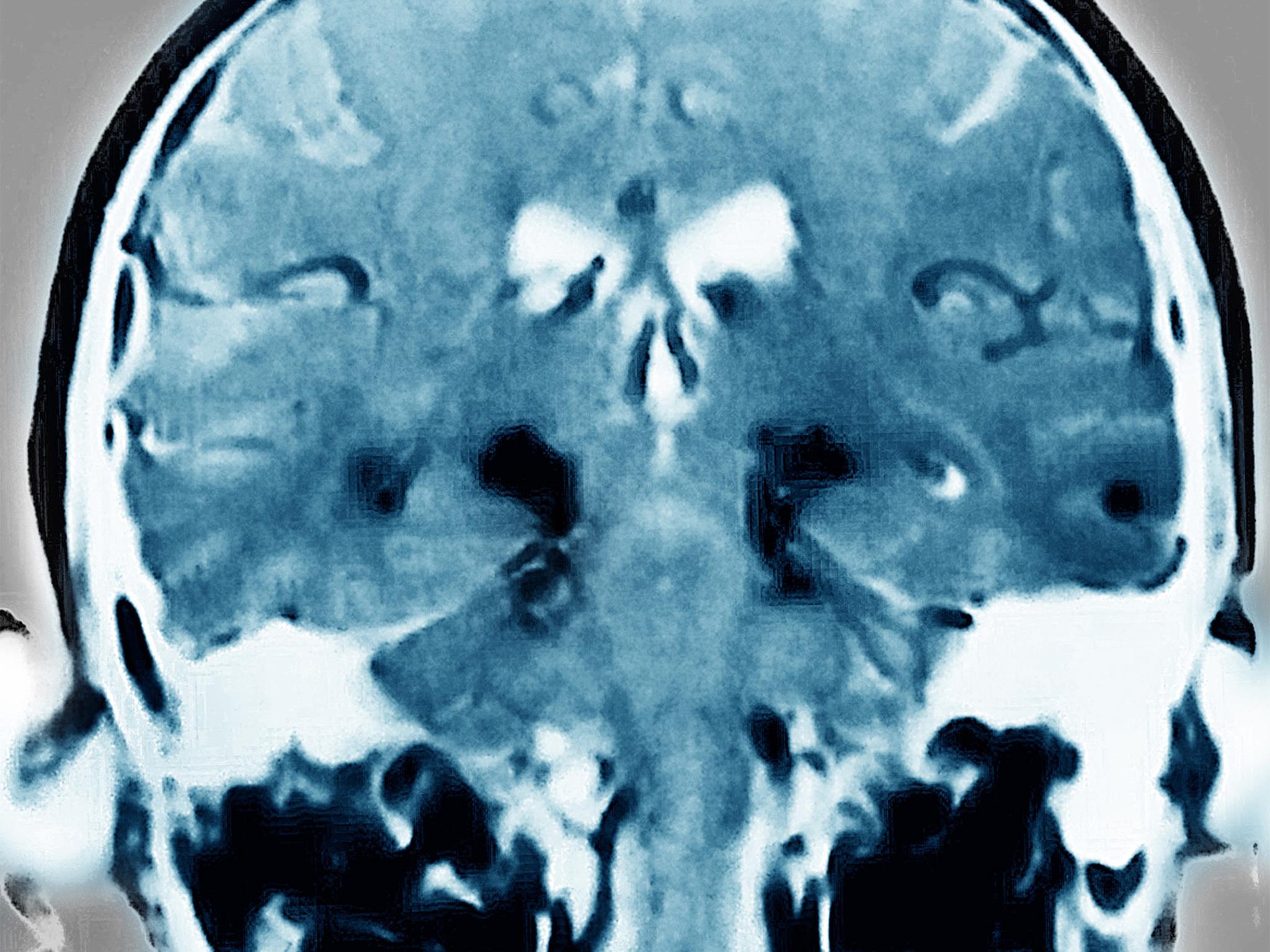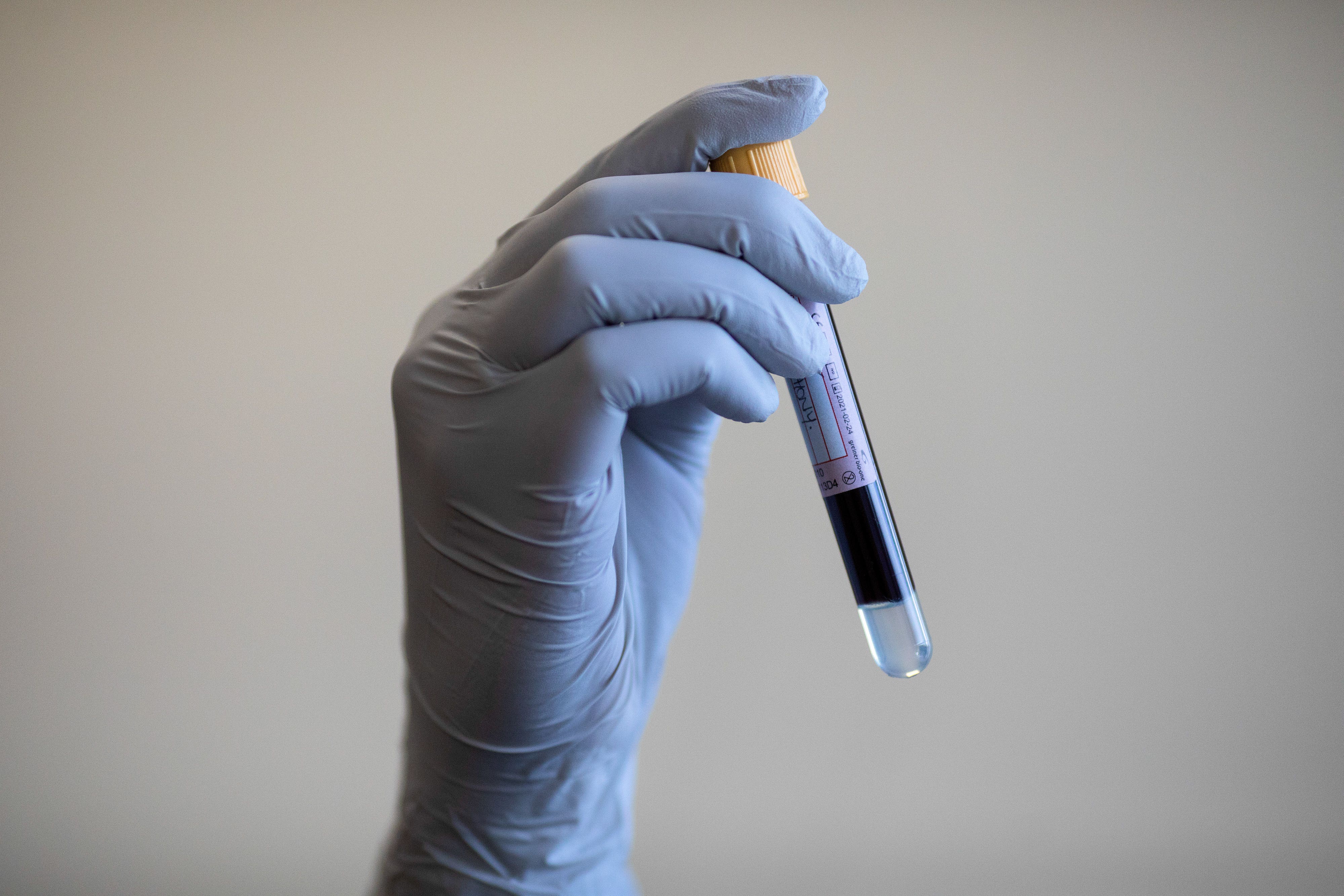Breakthrough AI test could predict Parkinson’s disease seven years before any symptoms
Around one in 37 people alive today in the UK will be diagnosed with Parkinson’s in their lifetime

Your support helps us to tell the story
From reproductive rights to climate change to Big Tech, The Independent is on the ground when the story is developing. Whether it's investigating the financials of Elon Musk's pro-Trump PAC or producing our latest documentary, 'The A Word', which shines a light on the American women fighting for reproductive rights, we know how important it is to parse out the facts from the messaging.
At such a critical moment in US history, we need reporters on the ground. Your donation allows us to keep sending journalists to speak to both sides of the story.
The Independent is trusted by Americans across the entire political spectrum. And unlike many other quality news outlets, we choose not to lock Americans out of our reporting and analysis with paywalls. We believe quality journalism should be available to everyone, paid for by those who can afford it.
Your support makes all the difference.A simple blood test could predict Parkinson’s disease seven years before symptoms appear.
The news marks a “major step forward” in diagnosis of the condition.
Researchers believe early prediction and diagnosis would help in finding treatments that could slow or stop Parkinson’s.
The test uses artificial intelligence (AI) to predict the disease, which is caused by the death of nerve cells in the part of the brain that controls movement.
When these nerve cells die or become impaired, they lose the ability to create a chemical called dopamine.
People with Parkinson’s are currently treated with dopamine replacement therapy after they have already developed symptoms, such as tremors or slowness of movement.
It is thought that early diagnosis and treatment would help protect the dopamine-producing brain cells.
Co-first-author Dr Michael Bartl, of University Medical Centre Goettingen and Paracelsus-Elena-Klinik Kassel, alongside Dr Jenny Hallqvist, UCL Queen Square Institute of Neurology, said: “By determining eight proteins in the blood, we can identify potential Parkinson’s patients several years in advance.
“This means that drug therapies could potentially be given at an earlier stage, which could possibly slow down disease progression or even prevent it from occurring.”
Professor David Dexter, director of research at Parkinson’s UK, said: “This research, co-funded by Parkinson’s UK, represents a major step forward in the search for a definitive and patient-friendly diagnostic test for Parkinson’s.
“Finding biological markers that can be identified and measured in the blood is much less invasive than a lumbar puncture, which is being used more and more in clinical research.”
The research found that when a branch of AI called machine learning analysed a panel of eight blood-based biomarkers whose concentrations are altered in patients with Parkinson’s, it could provide a diagnosis with 100% accuracy.

Senior author Professor Kevin Mills, of UCL Great Ormond Street Institute of Child Health, said: “As new therapies become available to treat Parkinson’s, we need to diagnose patients before they have developed the symptoms.
“We cannot regrow our brain cells and therefore we need to protect those that we have.
“At present we are shutting the stable door after the horse has bolted and we need to start experimental treatments before patients develop symptoms.”
He added that with sufficient funding, it is hoped the test will be used by the NHS within two years.
Symptoms, according to the NHS
The main symptoms of Parkinson’s disease affect physical movement:
The main symptoms of Parkinson’s disease affect physical movement:
- tremor – shaking, which usually begins in the hand or arm and is more likely to occur when the limb is relaxed and resting
- slowness of movement (bradykinesia) – physical movements are much slower than normal, which can make everyday tasks difficult and result in a distinctive slow, shuffling walk with very small steps
- muscle stiffness (rigidity) – stiffness and tension in the muscles, which can make it difficult to move around and make facial expressions, and can result in painful muscle cramps (dystonia)
These main symptoms are sometimes referred to by doctors as parkinsonism.
The experts suggest that with further research this test could potentially distinguish between Parkinson’s and other conditions that have some early similarities.
The team also looked at whether the test could predict the likelihood of someone going on to develop Parkinson’s.
Blood from 72 patients with Rapid Eye Movement Behaviour Disorder (iRBD) was analysed as it is known that about 75% to 80% of these people will go on to develop a synucleinopathy – a type of brain disorder caused by the abnormal build-up of a protein called alpha-synuclein in brain cells – including Parkinson’s.
The patients were followed up over 10 years and researchers say the AI predictions have so far been correct, with the team correctly predicting 16 patients would go on to develop Parkinson’s and being able to do this up to seven years before the onset of any symptoms.
According to Parkinson’s UK, around one in 37 people alive today in the UK will be diagnosed with Parkinson’s in their lifetime, and there are 153,000 people already living with the condition.
The researchers are hoping to secure funding to create a simpler test where a drop of blood can be spotted on a card and posted to the lab to investigate if it can predict Parkinson’s even earlier than the seven years before the onset of symptoms in this study.
The research, which was funded by an EU Horizon 2020 grant, Parkinson’s UK, the National Institute for Health and Care Research GOSH Biomedical Research Centre, and the Szeben-Peto Foundation, is published in Nature Communications.
Join our commenting forum
Join thought-provoking conversations, follow other Independent readers and see their replies
Comments